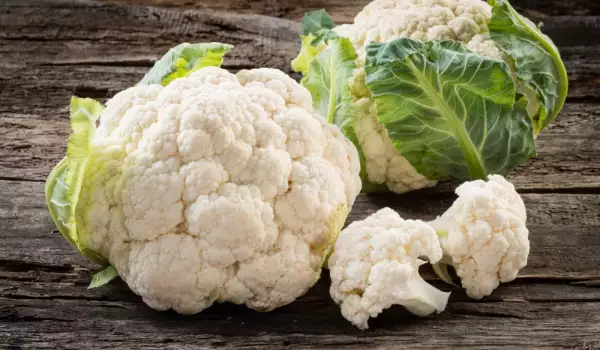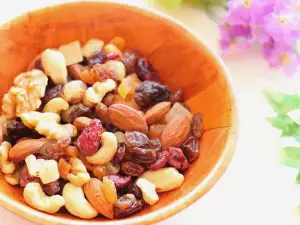Cauliflower is an extremely healthy vegetable with a number of health benefits.
Check out the 8 benefits of eating cauliflower:
Contains a lot of nutrients
Cauliflower is very low in calories but high in vitamins. The truth is that it contains almost all the vitamins and minerals that our body needs.
In 128 g of raw cauliflower there is:
- Calories: 25
- Fiber: 3 g
- Vitamin C: 77% of the recommended daily intake
- Vitamin K: 20% of the recommended daily intake
- Vitamin B6: 11% of the recommended daily intake
- Folic acid: 14% of the recommended daily intake
- Pantothenic acid: 7% of the recommended daily intake
- Potassium: 9% of the recommended daily intake
- Manganese: 8% of the recommended daily intake
- Magnesium: 4% of the recommended daily intake
- Phosphorus: 4% of the recommended daily intake
It has a high fiber content

Cauliflower contains a large amount of fiber, which is important for reducing inflammation and aiding digestion. A diet rich in fiber is associated with a lower risk of cardiovascular disease, cancer and diabetes.
Good source of antioxidants
Cauliflower is very rich in the antioxidants glucosinolates and isothiocyanates, which have been shown to slow the growth of cancer cells. It also contains carotenoids, flavonoids and vitamin C, which reduce the risk of cardiovascular disease and stimulate the immune system.
Can help with weight loss

Cauliflower is high in fiber and water. In fact, the water content is an impressive 92%. All these properties can be beneficial in weight loss.
It is rich in Vitamin B4 (Choline)
Choline is an important nutrient that many people don't get enough of. One cup of cauliflower contains 45 mg of choline, which is about 11% of the recommended intake for women and 8% for men. Choline is involved in many processes in the body, such as maintaining the integrity of cell membranes, synthesizing DNA and maintaining metabolism. It also prevents the risk of liver, heart and neurological diseases.
Rich in sulforaphane
Cauliflower contains the antioxidant sulforaphane. Sulforaphane is a plant compound with many beneficial effects. It reduces the risk of cancer, cardiovascular disease and diabetes.
Low-carb alternative to grains and legumes

Eating cauliflower is a fantastic way to increase your vegetable intake and stick to a low carb diet. One cup of cauliflower contains 5 g of carbohydrates, and one cup of rice contains 45 g of carbohydrates - nine times more than cauliflower.
Easily applied to the diet
It's very easy to add cauliflower to your menu. You can eat it raw, boiled, stewed or roasted. In addition, it can be used in many recipes and combined with different dishes.
If you love cauliflower, be sure to try these cauliflower recipes:




















Comments